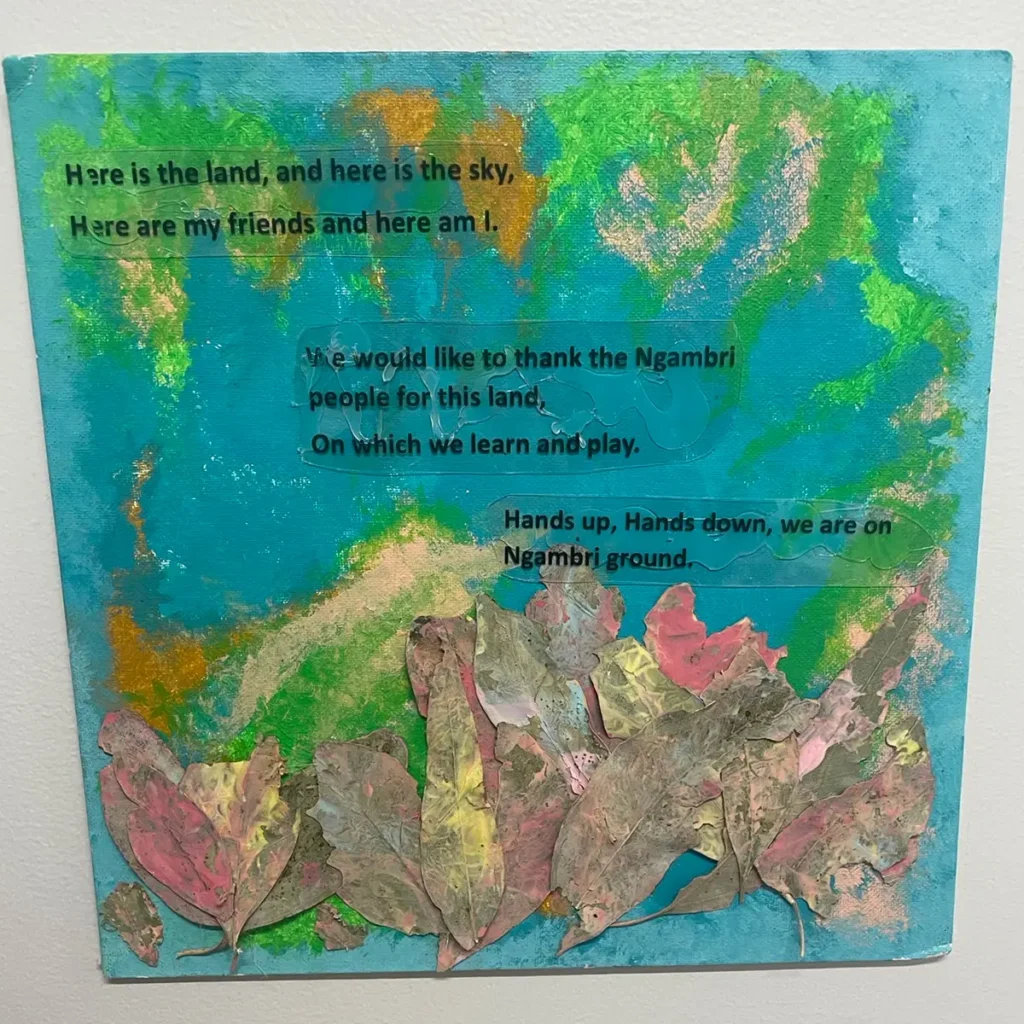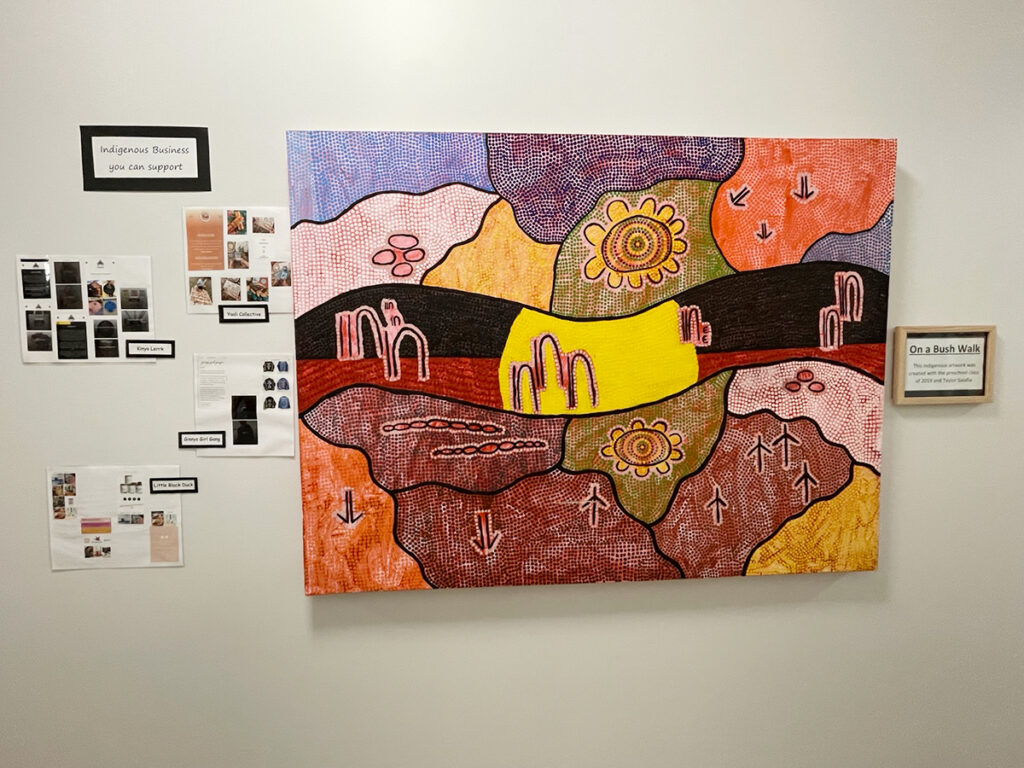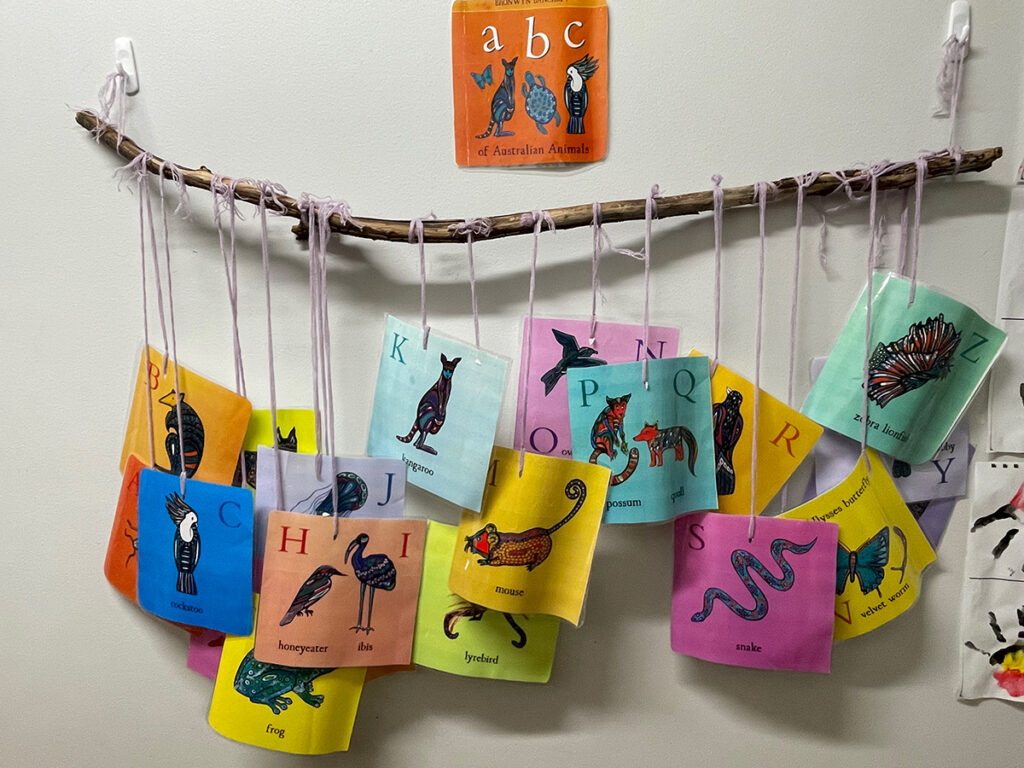As part of our series on how to embed Aboriginal and Torres Strait Islander perspectives in early childhood, we caught up with Taylor Salafia, Service Manager of Busy Bees on Furlong Road (New South Wales). Identifying as an Aboriginal person herself, Taylor is very passionate about First Nations perspectives and is sharing with us about how her team takes continued action to create an inclusive learning environment for all families.
How have you incorporated an Acknowledgement of Country throughout the Centre?
“We have an Acknowledgement of Country in every room and children and their Educators have control over how it is displayed. Some rooms have painted theirs or added natural materials such as leaves, bark, gumnuts. Our toddlers and preschoolers do the acknowledgement each day in their morning group times and have conversations with their Educators on the importance of the Acknowledgement of Country. They love talking about whose land we are on and why we say it.”

The Busy Bees team also developed a beautiful way to do the Acknowledgement of Country in their nursery rooms. “Each nursery room has baskets with different representations of the acknowledgement. When we say ‘Here is the sky’ they have fabric that has colours from the sky. And for ‘Here are my friends and here am I’ they have photos of the children in the room.”
Taylor takes from her team’s lived experiences as First Peoples to authentically teach the children the meaning and importance behind all cultural activities. Aboriginal and Torres Strait Islander cultures are embedded throughout the year and families are involved to ensure that these cultural and historical learnings can be supported at home.
How do you ensure what you are implementing at your childcare centre is consistent with the local land you are on?
“We first tried reaching out to local Elders and First Peoples of the area. We found websites written and run by First Nations in the area and used them as resources to gain a deeper understanding of the land as myself and the other Aboriginal and Torres Strait Islander team members are not from the land on which we work, Ngambri Country. I am also proud to be part of several Aboriginal and Torres Strait Islander discussion groups.”
We recommend visiting the The Australian Institute of Aboriginal and Torres Strait Islander Studies (AIATSIS) website to learn more about the story of Aboriginal and Torres Strait Islander Australia in all its diversity and access their curriculum resources.


How do you ensure everyone is included in the development of the Reconciliation Action Plan (RAP) for your centre?
“We always discuss culture and cultural events happening in the month and how we are going to embed Aboriginal and Torres Strait Islander perspectives. It’s an important part of our staff meetings and we also have quarterly meetings dedicated to teaching First Nations history to staff members who are not Aboriginal or Torres Strait Islander people so that everyone can then transfer knowledge to the children and families.”
Dedicated meetings are important to go over the Reconciliation Action Plan and actions that the Centres commit to embed and incorporate. Teams can review success and identify where they may need to focus more attention in the future. All Busy Bees centres are encouraged to take continued action to create inclusive learning environments for all families.
In the spirit of reconciliation, Busy Bees Early Learning acknowledges the Traditional Custodians of the country throughout Australia and recognises First Nations peoples’ continued cultural and spiritual connections to land, sea, sky and community. We pay our respects to Elders past, present and emerging, and extend that respect to all Aboriginal and Torres Strait Islander peoples today.
Busy Bees welcomes your family to tour every day of the year. Find your nearest centre and give us a Buzz or book a tour online.
Are you an education superhero looking to inspire the next generation of lifelong learners? Whether you’re an experienced Educator or looking to start or change your career, we’d love to talk to you about joining our Hive.
